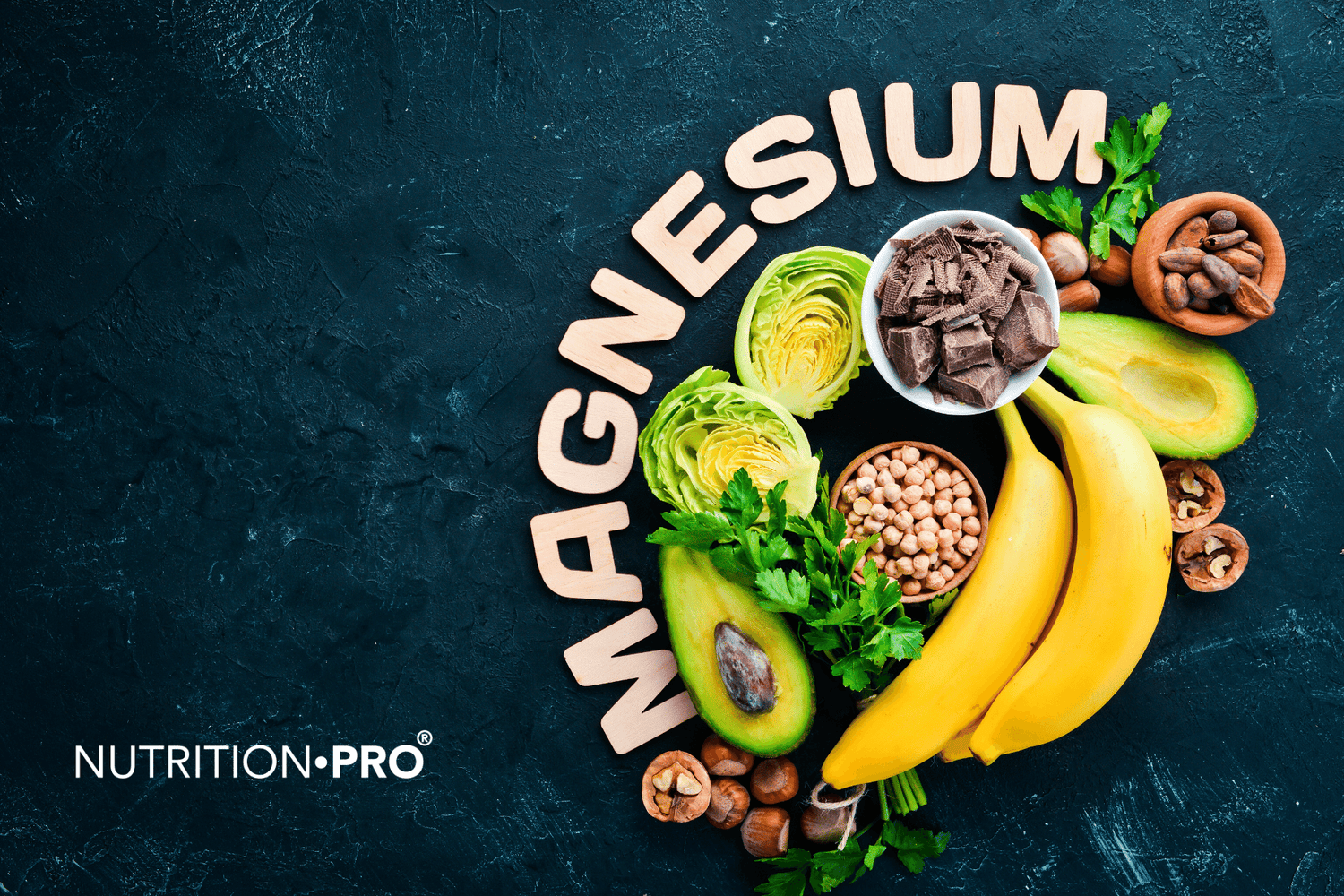What is Magnesium?
Magnesium is the fourth most abundant mineral in our body .
It is involved in over 300 metabolic reactions essential to human health, including energy production, blood pressure regulation, nerve signal transmission and muscle contraction.
Interestingly, low magnesium levels are linked to various diseases, such as type 2 diabetes, heart disease, mood disorders, and migraines.
Although this mineral is found in many whole foods like green leafy vegetables, legumes, nuts, and seeds, up to two-thirds of people in the Western world do not meet their magnesium needs from just one diet. .
To increase their magnesium intake , many people turn to supplements. However, since there are several varieties of supplemental magnesium, it can be difficult to know which is the most appropriate for your needs:

Discover our improved formula of highly bioavailable magnesium by clicking here
This article reviews 10 different forms of magnesium , along with their uses.
1. Magnesium Malate
Magnesium malate contains malic acid, which occurs naturally in foods like fruit and wine. This acid has a sour taste and is often used as a food additive to enhance flavor or add acidity.
Research suggests that magnesium malate is very well absorbed in your digestive tract, making it one of the best options for replenishing your magnesium levels .
Some people report that it is gentler on your system and may have less of a laxative effect than other forms. This may be beneficial, depending on your specific needs.
Magnesium malate is also recommended as a treatment for symptoms associated with fibromyalgia and chronic fatigue syndrome.
2. Magnesium taurate
Magnesium taurate contains the amino acid taurine .
Research suggests that adequate intakes of taurine and magnesium play a role in regulating blood sugar. Thus, this particular shape may promote healthy blood sugar levels .
Magnesium and taurine also support healthy blood pressure .
A recent animal study found that magnesium taurate significantly reduced blood pressure in rats with elevated levels, indicating that this form may support heart health.
3. Magnesium oxide
Magnesium oxide is a salt that combines magnesium and oxygen.
It naturally forms a white, powdery substance and can be sold in powder or capsule form. It is also the main active ingredient in Magnesia, a popular over-the-counter medication for relieving constipation.
This type is generally not used to prevent or treat magnesium deficiencies because some studies indicate that it is poorly absorbed by your digestive tract.
Instead, it's more frequently used for the short-term relief of uncomfortable digestive symptoms, such as heartburn, indigestion, and constipation. It can also be used to treat and prevent migraine headaches .
4. Magnesium citrate
Magnesium citrate is a form of magnesium bound to citric acid.
This acid is found naturally in citrus fruits and gives them their tart, tangy flavor. Artificially produced citric acid is often used as a preservative and flavor enhancer in the food industry.
Magnesium citrate is one of the most common magnesium formulations and can be easily purchased online or in stores around the world.
Some research suggests that this type is among the most bioavailable forms of magnesium , meaning it's more easily absorbed in your digestive tract than other forms.
It is usually taken orally to replenish low magnesium levels. Due to its natural laxative effect, it is also sometimes used in higher doses to treat constipation.
Additionally, it is sometimes marketed as a calming agent to help relieve symptoms associated with depression and anxiety , but more research is needed on these uses.
5. Magnesium chloride
Magnesium chloride is a magnesium salt that includes chlorine, an unstable element that bonds well with other elements, including sodium and magnesium, to form salts.
It is well absorbed in your digestive tract, making it a great all-around supplement. You can use it to treat low magnesium levels , heartburn, and constipation .
Magnesium chloride is most commonly taken in capsule or tablet form, but also sometimes used in topical products like lotions and ointments.
6. Magnesium Lactate
Magnesium lactate is the salt formed when magnesium binds with lactic acid.
This acid is not only produced by your muscles and blood cells, but also manufactured for use as a preservative and flavoring agent.
Indeed, magnesium lactate is used as a food additive to regulate acidity and fortify foods and beverages. It is less popular as an over-the-counter dietary supplement.
Magnesium lactate is easily absorbed and may be a bit gentler on your digestive system than other types. This is especially important for people who need to take high doses of magnesium regularly or who don't tolerate other forms easily.
In a study of 28 people with a rare disease requiring high doses of magnesium daily, those who took a slow-release magnesium lactate tablet had fewer digestive side effects than the control group.
A few small studies also reveal that this form can help treat stress and anxiety.
7. Magnesium L-threonate
Magnesium L-threonate is the salt formed by mixing magnesium and threonic acid, a water-soluble substance derived from the metabolic breakdown of vitamin C.
This form is easily absorbed. Animal research notes that it may be the most effective type for increasing magnesium concentrations in brain cells.
Magnesium L-threonate is often used for its potential brain benefits and may help manage certain brain disorders , such as depression and age-related memory loss. Nevertheless, more research is needed.
8. Magnesium Sulfate
Magnesium sulfate is formed by combining magnesium, sulfur and oxygen. It is commonly called Epsom salt.
It is white with a texture similar to table salt. It can be consumed as a treatment for constipation, but its unpleasant taste leads many people to choose an alternative form of digestive support.
Magnesium sulfate is frequently dissolved in bath water to soothe sore, aching muscles and relieve stress. It is also sometimes included in skin care products, such as lotions or body oils.
Although adequate levels of magnesium may play a role in muscle relaxation and stress relief, there is very little evidence to suggest that this form is well absorbed through the skin.
9. Magnesium glycinate
Magnesium glycinate is formed from elemental magnesium and the amino acid glycine.
Your body uses this amino acid in building protein. It is also present in many protein-rich foods, such as fish, meat, dairy products and legumes.
Glycine is often used as a standalone dietary supplement to improve sleep and treat various inflammatory conditions, including heart disease and diabetes.
Magnesium glycinate is easily absorbed and may have calming properties. It can help reduce anxiety, depression, stress and insomnia. Still, the scientific evidence on these uses is limited, so more studies are needed.
10. Magnesium orotate
Magnesium orotate includes orotic acid, a naturally occurring substance involved in building your body's genetic material, including DNA.
It is easily absorbed and does not have the strong laxative effects characteristic of other forms.
Early research suggests it may support heart health due to orotic acid's unique role in the energy-producing pathways in your heart and blood vessel tissues.
As such, it's popular among competitive athletes and fitness enthusiasts, but it may also help people with heart disease.
A study in 79 people with severe congestive heart failure found that magnesium orotate supplements were significantly more effective for symptom management and survival than a placebo.
Yet, this form is significantly more expensive than other magnesium supplements. Based on the limited evidence available, its benefits do not justify its cost for many people.
What is the best form of magnesium?
Magnesium malate is better absorbed than other forms of magnesium supplements .
One study compared several magnesium supplements and found that magnesium malate provided the most bioavailable magnesium .
Should I take a magnesium supplement?
Certain populations may be at higher risk of deficiency, including older adults and people with type 2 diabetes, digestive disorders, and alcohol dependence.
If you are deficient, getting this mineral from whole foods is still the best initial strategy. Magnesium is present in a variety of foods such as legumes, vegetables, nuts, whole grains, dark chocolate etc.
If you are unable to get enough magnesium from your diet, our Magnesium supplement may benefit you.















